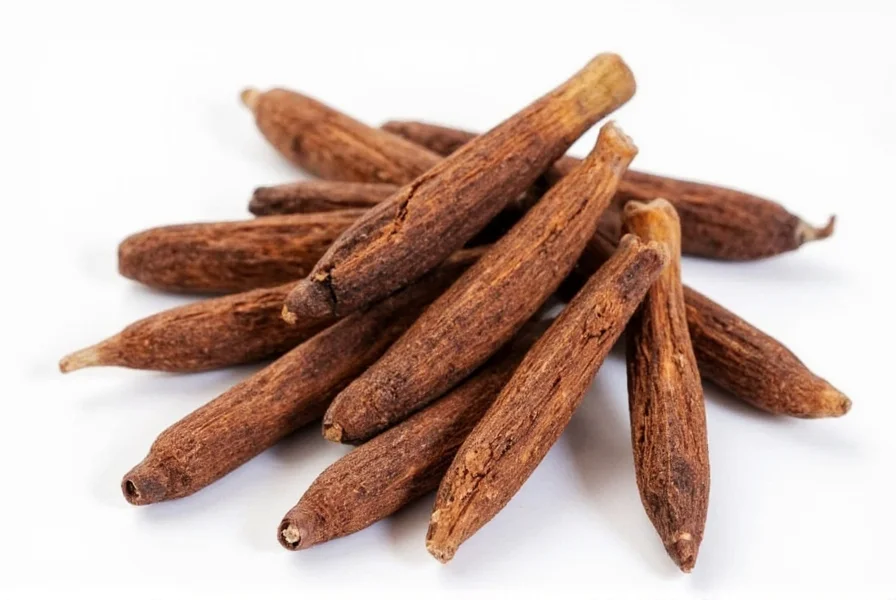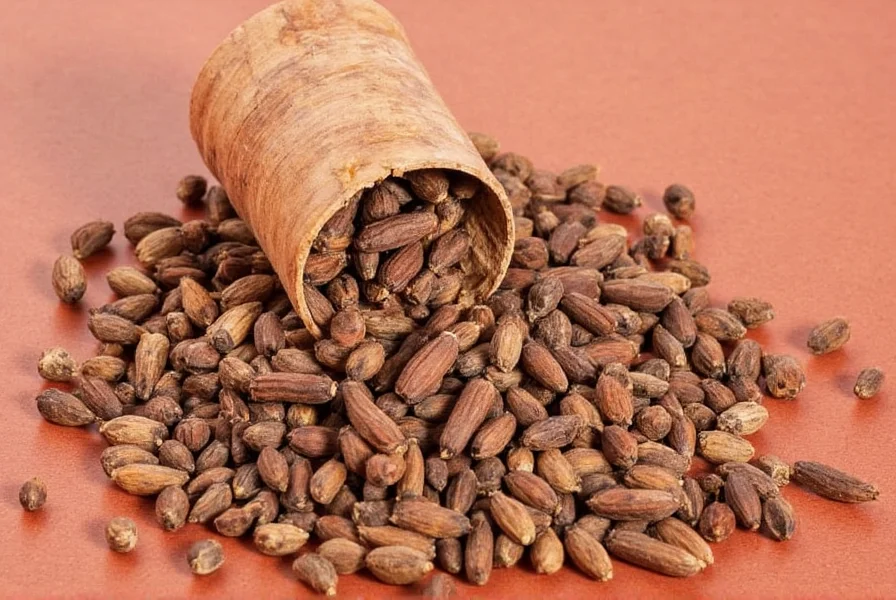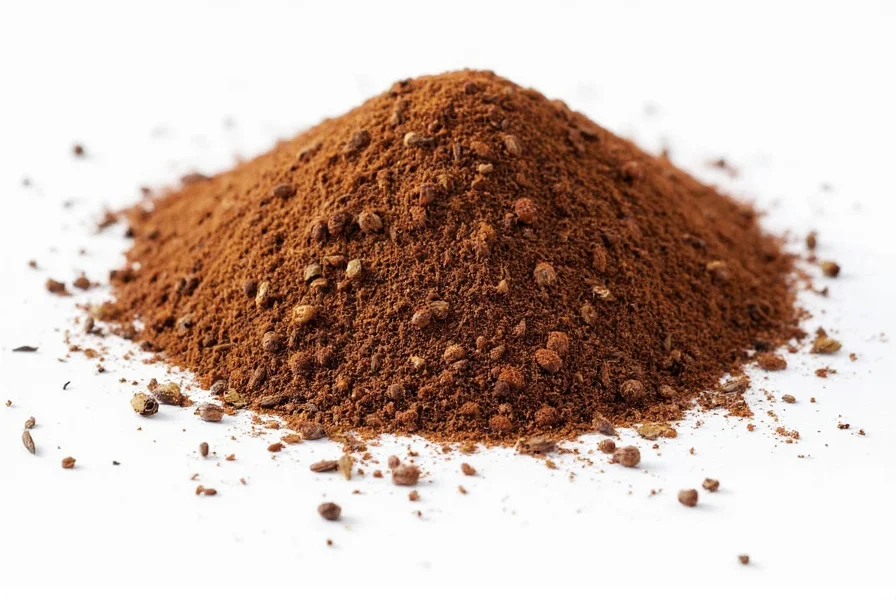Running out of cloves during cooking doesn't have to ruin your recipe. Understanding the right clove alternatives ensures your dishes maintain their intended flavor profile whether you're baking holiday cookies or preparing a savory stew. Cloves deliver a distinctive warm, sweet, and slightly bitter flavor with hints of citrus and earthiness that's challenging to replicate exactly, but several common pantry spices can effectively stand in.
Understanding Clove's Unique Flavor Profile
Cloves contain eugenol, which gives them their signature pungent, warm, and slightly numbing quality. This compound makes cloves potent—you need far less than other spices to achieve noticeable flavor. Whole cloves release flavor slowly when simmered, while ground cloves disperse quickly throughout dishes. Recognizing these characteristics helps you choose the most appropriate substitute based on your specific cooking application.
Top Clove Substitutes Ranked by Effectiveness
Not all substitutes work equally well in every situation. The best alternative depends on whether you're making sweet or savory dishes, and whether your recipe calls for whole or ground cloves.
| Substitute | Best For | Flavor Match | When to Avoid |
|---|---|---|---|
| Allspice | Baking, mulled wine, spice blends | ★★★★☆ | Delicate dishes where allspice's complexity might overpower |
| Cinnamon-Nutmeg Blend | Pumpkin pie, apple desserts, baked goods | ★★★☆☆ | Savory meat dishes requiring cloves' distinctive bite |
| Star Anise | Braised meats, stews, Chinese five-spice applications | ★★★☆☆ | Delicate baked goods where licorice notes would be distracting |
| Cardamom | Rice pudding, Scandinavian baking, chai | ★★☆☆☆ | Recipes requiring cloves' sharper, more medicinal notes |
Detailed Substitution Guide
Allspice: The Closest Single-Spice Alternative
Allspice earns its name because it tastes like a blend of cloves, cinnamon, and nutmeg. Its warm, slightly peppery notes make it the most direct replacement, especially in baking applications. When substituting allspice for cloves:
- Use 3/4 teaspoon allspice for every 1 teaspoon of ground cloves
- For whole cloves, use 6 allspice berries to replace 8 whole cloves
- Best in: Pumpkin pie, gingerbread, apple crisp, mulled wine

Cinnamon-Nutmeg Blend: Ideal for Baked Goods
When you need a clove substitute for sweet recipes but lack allspice, combine these two common pantry staples:
- Mix 1/2 teaspoon cinnamon with 1/2 teaspoon nutmeg to replace 1 teaspoon cloves
- For stronger clove flavor, add a pinch of ground ginger
- Perfect for: Cinnamon rolls, apple pie, bread pudding
Star Anise: Best for Savory Applications
Star anise shares cloves' eugenol content, giving it a similar aromatic profile with distinctive licorice notes. Use it when:
- Simmering broths, stews, or braises (remove before serving)
- Preparing Chinese five-spice influenced dishes
- Substituting at a 1:1 ratio for whole cloves in liquid-based recipes
Substitution Ratios Cheat Sheet
Keep this reference handy when modifying recipes:
| Original Amount | Allspice | Cinnamon-Nutmeg Blend | Star Anise |
|---|---|---|---|
| 1 tsp ground cloves | 3/4 tsp ground allspice | 1/2 tsp cinnamon + 1/2 tsp nutmeg | 1/2 tsp ground star anise |
| 1 whole clove | 3/4 allspice berry | N/A | 1 star anise point |
| 6 whole cloves | 5 allspice berries | N/A | 1 whole star anise |
Recipe-Specific Substitution Recommendations
For Baking Projects
When making pumpkin pie spice substitute without cloves, combine 1 tablespoon cinnamon, 2 teaspoons nutmeg, 1.5 teaspoons ginger, and 1 teaspoon allspice. This blend works perfectly in pumpkin pie, carrot cake, and other fall desserts where cloves typically appear.
For Savory Dishes
In beef stew recipes calling for cloves, star anise provides the closest flavor match. Use one whole star anise pod per recipe instead of 4-6 whole cloves. Remove before serving as the star shape remains intact during cooking.
For Beverages
When making mulled wine without cloves, allspice berries work best. Use 1 teaspoon allspice berries per bottle of wine along with cinnamon sticks and orange peel. The allspice releases flavor gradually like whole cloves would.
Common Substitution Mistakes to Avoid
Some popular suggestions for clove alternatives actually create inferior results:
- Using equal amounts of cinnamon alone - Creates a one-dimensional sweetness without cloves' complexity
- Substituting clove oil directly - Essential oils are too concentrated; use 1/4 teaspoon clove oil only when recipe specifically calls for it
- Replacing whole cloves with ground substitutes in pickling - Ground spices cloud liquids; use whole alternatives like allspice berries instead
Maximizing Flavor with Your Substitute
When using clove alternatives, consider these professional techniques:
- Add substitutes early in cooking for savory dishes to allow flavors to meld
- For baking, bloom ground substitutes in melted butter before incorporating
- Toast whole substitute spices (like allspice berries) before grinding for enhanced flavor
- Always taste and adjust—most substitutes require slight recipe modifications

Storing Your Substitute Spices Properly
Ground spices lose potency within 6 months, while whole spices maintain flavor for 2-4 years. Store all substitutes in airtight containers away from heat and light. Test spice freshness by rubbing a small amount between your fingers—if the aroma is weak, replace your spices before using them as clove alternatives.
Frequently Asked Questions
Can I use nutmeg alone as a clove substitute?
Nutmeg alone makes an incomplete substitute as it lacks cloves' distinctive sharpness. For better results, combine nutmeg with cinnamon (1:1 ratio) to approximate cloves' complex flavor profile, especially in baking applications like pumpkin pie or apple desserts.
What's the best clove substitute for ham glaze?
Allspice works best for ham glaze as a clove substitute. Use 3/4 teaspoon ground allspice for every 1 teaspoon of cloves the recipe requires. The allspice provides similar warmth without overwhelming the sweet-savory balance essential to proper ham glazing.
How do I substitute cloves in chai tea?
For chai tea recipes requiring cloves, use star anise as the closest substitute. Replace 4-6 whole cloves with 1 whole star anise pod. The star anise provides similar aromatic compounds while contributing complementary licorice notes that work well with chai's other spices.
Can pumpkin pie spice replace cloves directly?
Yes, pumpkin pie spice makes an excellent clove substitute since it typically contains cloves along with cinnamon, ginger, and nutmeg. Use a 1:1 ratio when replacing ground cloves in baking recipes. For recipes already calling for pumpkin pie spice plus additional cloves, increase the pumpkin pie spice by 25% to compensate.











 浙公网安备
33010002000092号
浙公网安备
33010002000092号 浙B2-20120091-4
浙B2-20120091-4